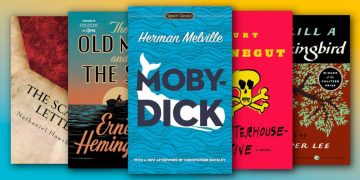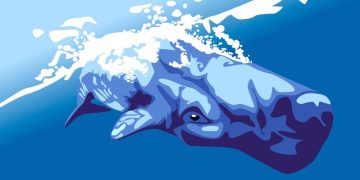If you ever wanted to enter some strange universe, there's no better way to do that than with an absurdist fiction book. This genre has the power to expand your worldview in the most surreal ways possible.
An absurdist novel is always satisfying to read, and the best part is, you'll discover something new each time you re-read it.
What Is Absurdist Fiction? Explained
Absurdist fiction rose to popularity in the 1950s and 60s, and some modern authors still dedicate themselves to the craft. Franz Kafka is the father of the genre, and his novella, The Metamorphosis, often represents the genre.
Absurdist fiction is all about the meaninglessness of life. As the main character floats through the story, they'll encounter surreal situations that won't even make them waver.
The lack of judgment from the main character or narrator means that you're left to form your own opinion of what's really going on.
Some of these situations might be satirical, darkly comedic, or just downright bizarre, and that's what makes absurdist fiction so fun to read—even long after these books were written.
Here are the best absurdist novels you should add to your book collection and read if you haven't already!
15. Invisible Man
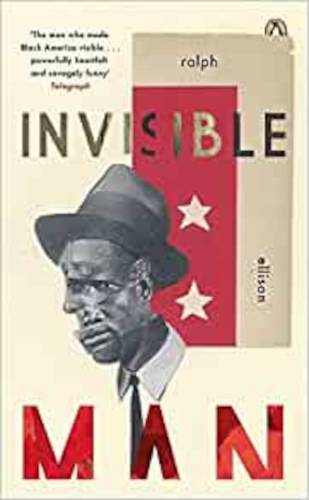
Invisible Man is a seminal piece of literature. It's so good that it not only kicks off our list of best absurdist novels, but it even inspired Barack Obama's writing style in his 1995 memoir Dreams From My Father.
Ralph Ellison's novel deals with race and all of the social, political, economic, and intellectual problems that were faced by African Americans in the middle of the 20th century.
However, what makes Invisible Man so interesting is how Ellison approaches contentious issues like Marxism, reformist racial policies, and black nationalism through a surreal lens. It's an approach that feels a lot like the absurdist works of Franz Kafka.
Invisible Man was so well-praised that it won Ellison the National Book Prize for Fiction in 1953, making him the first African-American author to win the prestigious award.
14. House of Leaves
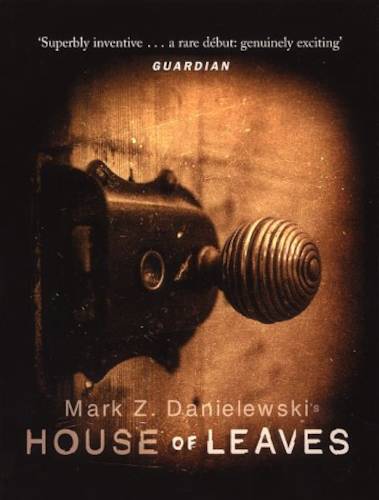
The first surreal element about Mark Z. Danielewski's debut novel House of Leaves is that the story poses as a monograph—it seems like a text that's just examining the qualities of a documentary movie.
But as the book develops, it changes shape. Different narrative voices are introduced, creating a bizarre and almost disorienting effect on the reader. What's happening here, exactly?
The answer is unclear, mostly due to the revolving door of characters who come in and out, each offering their voice to the story.
In the end, it's difficult to categorize House of Leaves. Is it a horror story? Most would argue that it is. Is it a love story? The author certainly thinks so. Is it a surreal absurdist novel? Without a doubt.
13. Froth on the Daydream
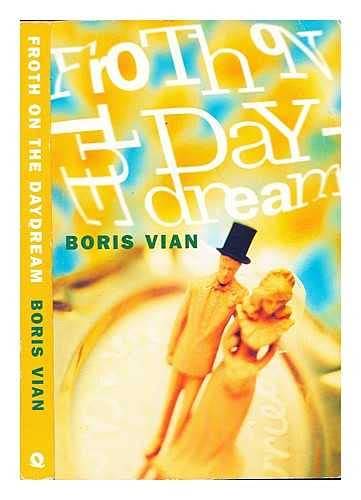
Written in 1947, Boris Vian's most celebrated work Froth on the Daydream is also his most surreal.
Unlike a lot of absurdist novels, Froth on the Daydream contains a standard, linear narrative. What makes it's so surreal is the sheer absurdity of everything that happens in the story.
For starters, there's a man who ages several years in the span of a week. You'll also find a woman who has a chronic illness that can only be treated by surrounding herself with vases upon vases of flowers.
There are also talking mice and wildly breathtaking romances full of crazy twists, but these seem tame compared to the rest.
Froth on the Daydream has been adapted many times into films, albums, and operas, but the original novel is still the best.
12. The Sirens of Titan
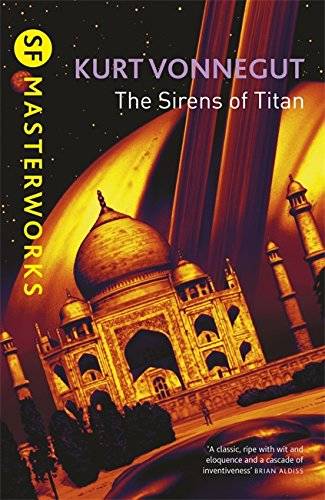
This won't be the last time Kurt Vonnegut appears on this list. Arguably one of the greatest absurdist fiction writers of all time, his books have no doubt inspired a few of the other authors on this list.
Kurt Vonnegut has many iconic stories, but The Sirens of Titan remains one of his most underrated novels.
The story revolves around the Martian invasion of Earth, and it all starts with such a ludicrous opening sequence that you're primed for the wildly surreal ride throughout the rest of the book.
In typical Vonnegut fashion, he explores themes of free will, purpose, and meaning, all of which make up the foundation of the absurdist fiction genre. But few do it quite as well as Vonnegut.
The Sirens of Titan was only Vonnegut's second novel, so it gained little attention when first released. Only after his later career success did people realize how good this overlooked gem was.
11. Nadja
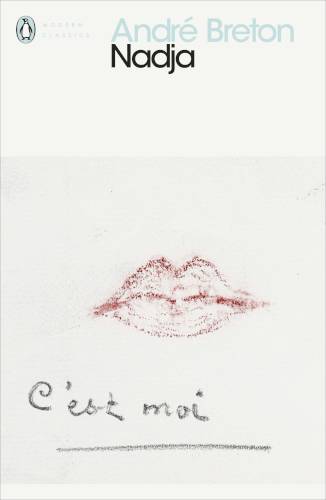
André Breton's Nadja is one of the earlier works of absurdist fiction, published all the way back in 1928 and a big enough milestone to become a massive influence on the surrealist movement.
With one of the most evocative openings in the history of literature, our narrator asks the reader: "Who am I?"
It's a question that not only starts off a fascinating story—filled with twists and turns and nonsensical happenings that befit an absurdist novel—but also kick-started an entire literary movement.
Nadja was hugely influential for French surrealist literature and informed a great deal of the genre's expectations afterwards.
10. The Trial
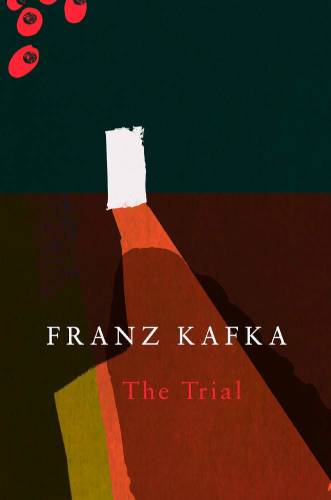
The Trial is a landmark of 20th century literature. We're not just talking absurdist literature, but Western literature as a whole.
The plot—if you can call it that—follows Josef K., a man who's been charged with a crime he didn't know he committed. He tries to find someone who can give him answers, but it's an impossible task.
Thus begins one of the most interesting critiques of bureaucracy and sprawling human systems ever written.
Many have noted (including the author himself) that The Trial is heavily inspired by Fyodor Dostoevsky, especially Crime and Punishment and The Brothers Karamazov.
Published posthumously, Franz Kafka's The Trial was never actually finished, meaning it has a bizarre ending that many remember for its abruptness and absurd quality.
9. Through the Looking-Glass
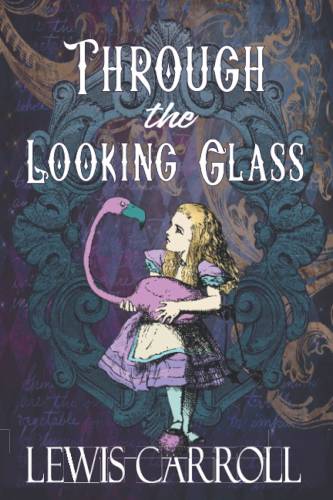
There's iconic, and then there's Lewis Carroll's Through the Looking-Glass. A sequel to Alice in Wonderland, this one finds Alice returning to a strange, unearthly place after climbing through a mirror.
Once there, she discovers that the entirety of the world that surrounds her is backwards: logic, physics, even words!
Many aspects of Through the Looking-Glass eventually became pop culture mainstays, including the narrative poems "Jabberwocky" and "The Walrus and the Carpenter."
What makes this story so memorable is Lewis Carroll's writing style, which spins together one of the most groundbreaking and spell-binding absurdist literature books ever written.
8. The Wind-Up Bird Chronicle
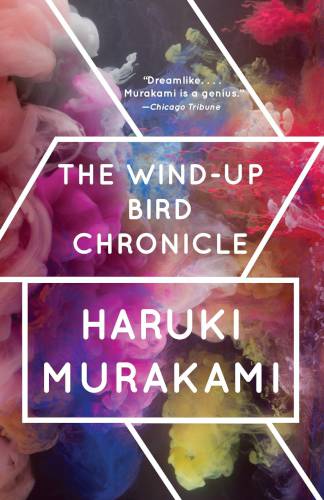
The title of The Wind-Up Bird Chronicle alone is confusingly surreal, so you know you're in for a treat if you're looking for an absurdist novel standout. Such is the magical realism of Haruki Murakami.
The story starts with one man receiving a phone call from an unidentified woman who whispers lascivious things to him. Then his cat disappears. Then his wife.
He experiences visits from clairvoyants, war veterans, and a girl who keeps skipping school. And there's a dried-up well across the neighborhood that may hold all the answers he's looking for...
The Wind-Up Bird Chronicle is a slow-moving book that contains over 600 pages of surreal mystery. In other words, a real treat!
7. The Master and Margarita
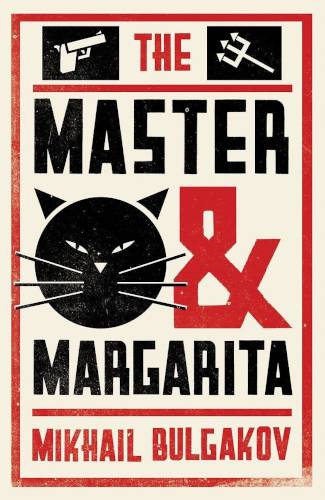
Mikhail Bulgakov's novel The Master and Margarita is one of the most bizarrely enchanting books in the absurdist fiction genre.
Jumping back and forth between different timelines, we start with a depiction of Pontius Pilate but eventually bounce over to an enormous black cat named Behemoth as well as Hella the female vampire.
Oh, and there's Satan, too.
While The Master and Margarita was written between 1928 to 1940 during Stalin's regime, it wasn't published until 1967! Sadly, it was long after the author's death. (We must thank his widow for bringing this absurdist gem to the world.)
6. The Plague
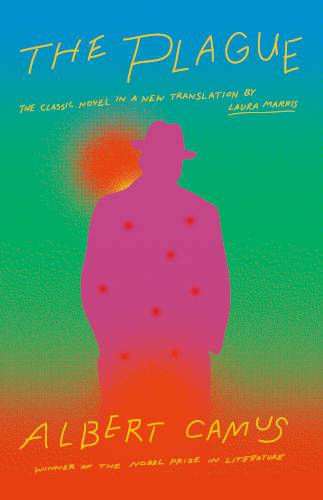
Albert Camus's The Plague explores a plague epidemic that runs rampant in Oran, Algeria. A quarantine locks Dr. Bernard Rieux in Algeria, where he remains separated from his sick wife.
The novel outlines the different reactions in the face of death—some are quick to blame, while others leave themselves to die.
On the surface, the premise of The Plague may just seem like an apocalyptic book about a deadly disease, but it also serves as an allegory for Nazi-occupied France.
Deeply philosophical but also unusually weird at the same time, The Plague is a classic book that's absolutely worth reading.
5. Slaughterhouse-Five
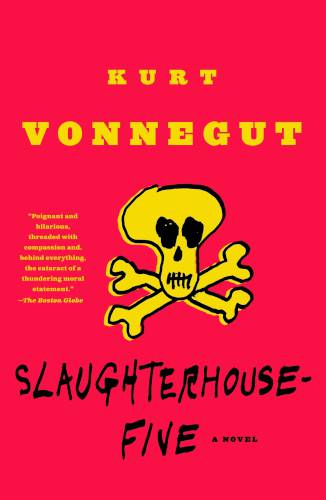
Coming in at number five on this list is Kurt Vonnegut's Slaughterhouse-Five. (Rather fitting, no?) Another solid entry by the great writer, this one covers the topic of war through an absurdist lens.
Slaughterhouse-Five follows the character of Billy Pilgrim, an American soldier who gets captured by the German army during World War II—and is later thrown into an alien zoo.
Billy recounts his dreamlike story through flashbacks and time travel, resulting in a nonlinear format that makes Slaughterhouse-Five an especially bizarre yet entertaining read.
4. Kafka on the Shore
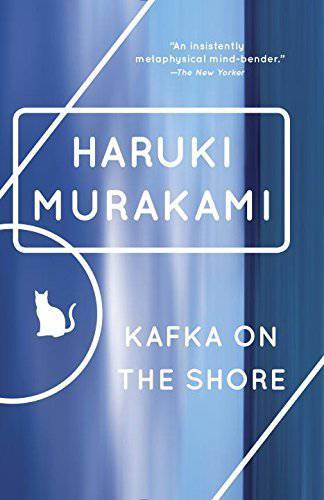
We've already mentioned Haruki Murakami above, but the Japanese author is so well-known for his mind-bending works that we can't help but include another one of his novels.
Published in 2002, Kafka on the Shore is one of the best modern absurdist novels ever written. Haruki Murakami is no stranger to surrealism, and his writing is much evolved in this one.
The main character is a teenage boy named Kafka who's trying to escape an inevitable fate. Meanwhile, an elderly man who can talk to cats embarks on a journey with a truck driver.
In Kafka on the Shore, Haruki Murakami interweaves these two seemingly unrelated stories, with every piece of the puzzle slowly coming together to produce a fittingly absurd climax.
3. Catch-22
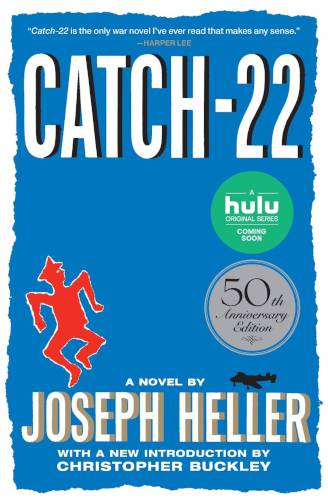
Joseph Heller's Catch-22 is one of the most prominent war novels to date, thanks to the absurd tactics Heller uses to tell his story.
Set in Italy during World War II, Catch-22 centers on the experiences of a frustrated bombardier named Yossarian.
When the military keeps increasing the number of missions they must fly before they can effectively finish their term, Yossarian decides he wants out. But anyone who tries to get excused from these perilous missions is known as breaking Catch-22.
Catch-22 is an outrageously paradoxical rule that says anyone who keeps performing combat missions is insane, but anyone who asks to be dismissed is sane—and thus not qualified to be relieved of service.
This novel made such good use of its premise that the made-up term "catch-22" caught on and remains one of the most iconic idioms in the English language today.
2. Cat's Cradle
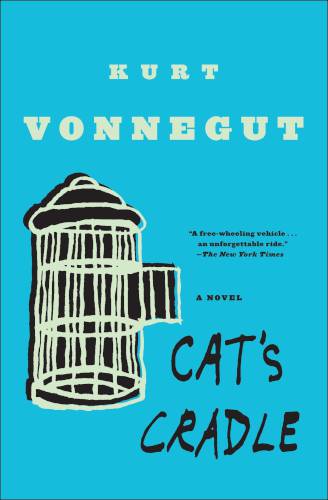
We've included Kurt Vonnegut several times already, but we promise Cat's Cradle is the last time! We just have to include it because Cat's Cradle is one of the most classic examples of absurdist fiction.
The story follows John, a journalist who sets out to write a book about the atomic bomb that was dropped on Hiroshima.
After he gets in touch with the son of Dr. Hoenikker (a fictional character who's depicted as one of the creators of the atomic bomb), John learns of a molecule called ice-nine.
This dangerous chemical could freeze over the whole world, and it's been split between Dr. Hoenikker's three offbeat children.
1. The Metamorphosis
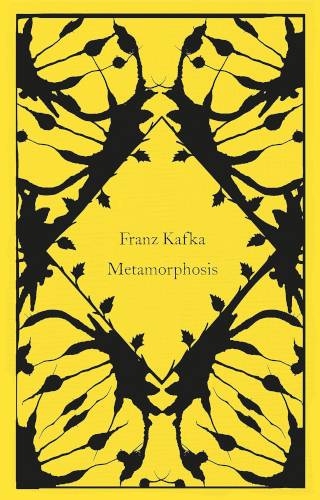
Easily one of the most surreal novels ever written, Franz Kafka's The Metamorphosis is relatively short but absolutely mind-boggling.
The Metamorphosis follows the experience of a young man named Gregor Samsa after he wakes up one morning and discovers that he has turned into a large insect.
Wait... What? Why? We're never actually given an answer as to why, making this story all the more surreal.
In fact, The Metamorphosis is so interesting largely because the whole thing is absurdity distilled down to its purest form.
We experience Gregor Samsa's bizarre existence and, in doing so, feel disconnected from our own reality. For some, this story may even make you feel unsure of your own place in the universe.
Published in 1915, The Metamorphosis is Franz Kafka's masterpiece and one of the most important absurdist fiction novels ever written. If you want to see the roots of the genre, this is the one to read.

